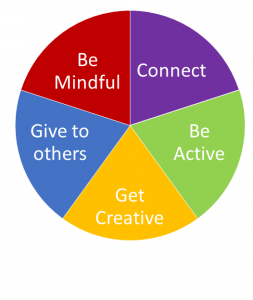Celebrating Our New Lead Schools for Music Education in Cheshire West and Wirral
On Thursday, 26th June, Edsential proudly welcomed six schools from...30 Jun 2025


Last week Anne Longfield, the Children’s Commissioner, hit the headlines in respect to the length of time that children spend on social media. As she launched a campaign to help parents manage their children’s internet usage she stated:
“Many children are using social media and the internet like sweets or junk food. Parents wouldn’t let their kids eat a double cheeseburger and fries every day, so they shouldn’t let them spend time online in an unhealthy way.”
Certainly, the ease of access to technology in the 21st Century should be a cause for concern if it is not part of a balanced diet of a wide range of interests and activities. I would add that there are many adults who are not getting this balance right either, and immerse themselves in their phones instead of the real world. This provides a double challenge for young people; the attractiveness of the technology and the role models which surround them. And if you are not one of those adults immersed in your phone are you cool enough to be a role model?
It has been said many times that the genie is out of the bottle as far as technology is concerned. It cannot be un-invented. However, there are opportunities to engage in discussion about how and when we use it, both as adults and as children. Thinking about my own children, aged between 5 and 18, I often consider what it would have been like to have the same level of media access when I was their age. Minecraft for the youngest is an immensely powerful social experience that I have seen translated into real life Lego creations that I couldn’t have even dreamt of when I was that age. The technology has prompted YouTube searches, the reading and discussion of various online manuals. We as parents have even encouraged him to further explore the history of castles and their construction. For the eldest, who is somewhat welded to his phone, it has enhanced his participation in an international Scout Moot in Iceland this summer, which a significant part used Social Media to link up with his peers to plan prior to the excursion, as well as sharing his experiences with his family whilst he was away.
In both these scenarios the technology is a tool. It helps extend the real-world experience. Children are not necessarily slaves to technology. My wife often says that “people live their lives through the viewfinder of a camera” rather than engaging in the moment. Social Media has further encouraged this to the point that many may consider the value of what they post to be more important that the experience itself.
This links back to Anne Longfield’s campaign from last week. She has suggested that “[Parents] have a responsibility as the providers of the smart phones, computers and iPads their children use, to step in now and make sure their children’s online lives are healthy.”
As the length of time spent online each week increases, as adults we need to consider what the technology is for and how it benefits our lives. Sharing is probably a part of that and we should engage in an active discussion around what we share, when we share it and why we are sharing it. I would also add that this is for adults as much as for children. If we don’t get it right how can we expect them to get it right?
Mark is the Designated Safeguarding Lead for Edsential and an experienced School Improvement Officer with a background in technology and eSafety. For additional information on Safeguarding, please click here.
For additional information, you can find the Digital 5 A Day campaign from the Children’s Commissioner here.